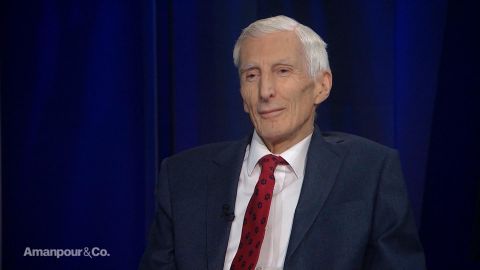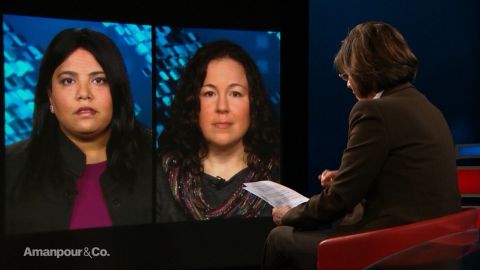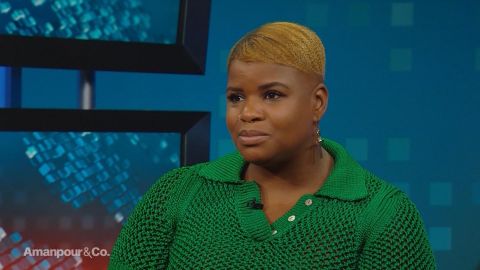Read Transcript EXPAND
ANURIMA BHARGAVA: So, I think the problem that we have been trying to fix is that one in five female students and one in 15 male students have an experience of sexual assault on campus, and less than 10 percent of those students report. And they don’t report because they don’t feel safe and comfortable and that puts everybody at risk. And what these new proposed rules are doing is discouraging people from coming forward to report and stacking the process against those students who do want to come forward and talk about what they have experienced. And for that reason, I think it is going to impact students the way that makes them less safe and puts them in the way of harm.
CHRISTIANE AMANPOUR: OK. So, there are three main issues, before I turn to Samantha, the three main issues are on — I believe on definition of what sexual aggression and sexual assault is, I believe location and indeed on the due process aspect of it. So, Samantha you just heard what Anurima said, you are a supporter of Betsy DeVos’s new proposals. Why do you support it particularly when you hear that it could discourage even the few people who do come forward to report these aggressions?
HARRIS: Well, I don’t believe that providing due process for students accused of sexual misconduct and providing student who have an assault to report with a safe and comfortable environment for coming forward are mutually exclusive. And I think that what we’ve seen over the past seven or eight years is that schools in an effort, in a well-intentioned effort, to address sexual misconduct on campus have created processes for adjudicating these cases that are manifestly unfair towards accused students but also that undermine the integrity of the process as a whole. So, I obviously agree that, you know, sexual assault is a very serious matter that schools need to address in a serious way but I don’t think that that is incompatible with a fair process and I think that these draft regulations go a long way towards restoring some fairness to the process that we’ve seen lacking over the past stretch of years.
AMANPOUR: OK. So, I’m going to get to the process, as you put it, in one moment. But I want to first get you both to talk about the changing definition of what assault or harassment on campus is. So, the Obama administration had a broader definition of sexual harassment as “unwelcome conduct of a sexual nature.” And now, the new DeVos proposals are narrowing it to mean “unwelcome conduct on the basis of sex that is so severe, pervasive and objectively offensive that it denies a person access to the school’s education program or activity.” So, what is wrong with that from your perspective
About This Episode EXPAND
Christiane Amanpour speaks with Anurima Bhargava and Samantha Harris about rules governing sexual assault on campus and Martin Rees about climate change. Alicia Menendez speaks with sexuality educator Ericka Hart.
LEARN MORE


